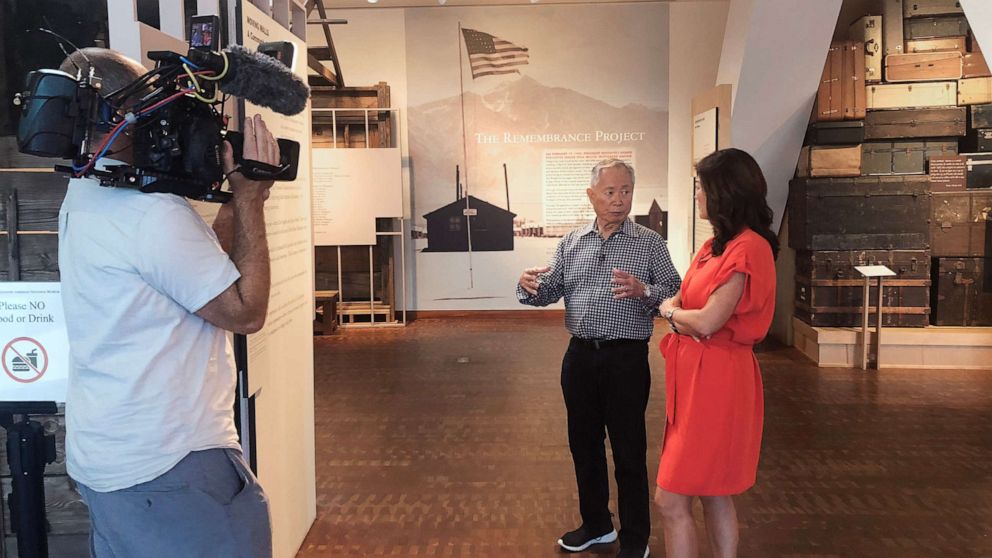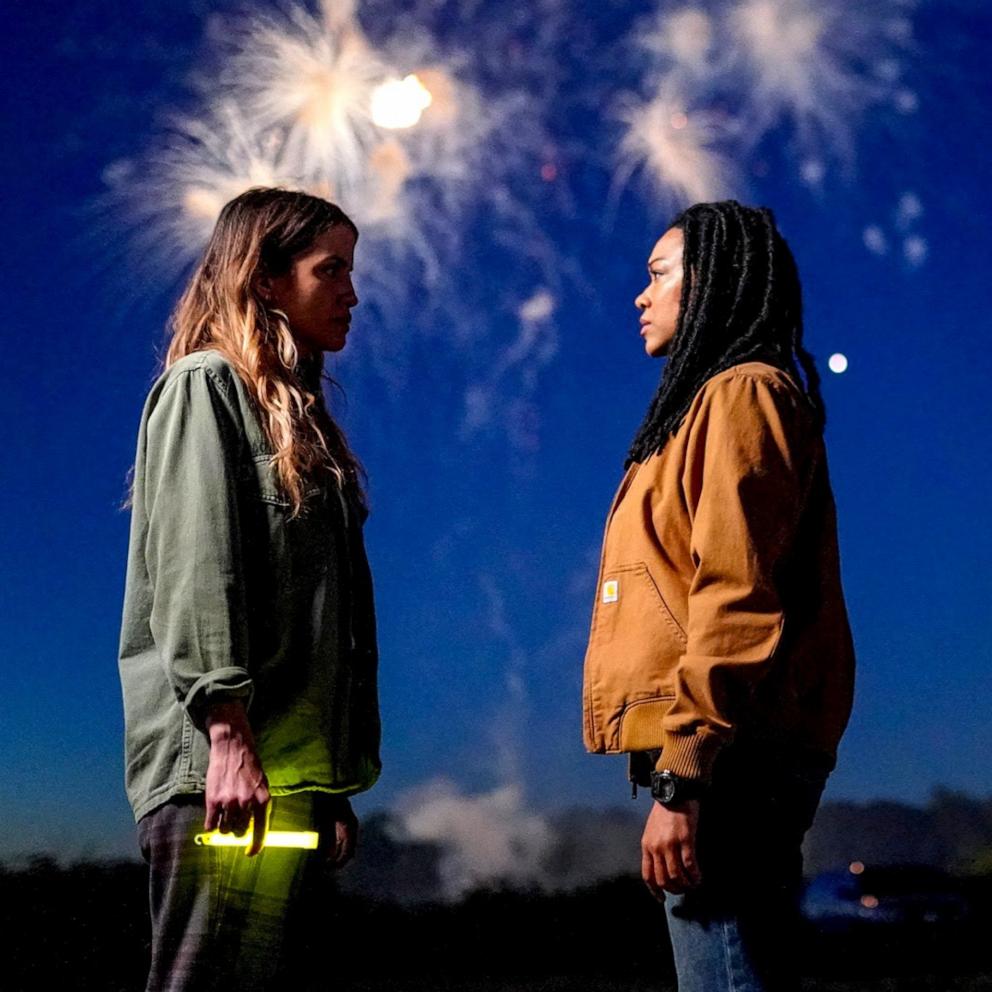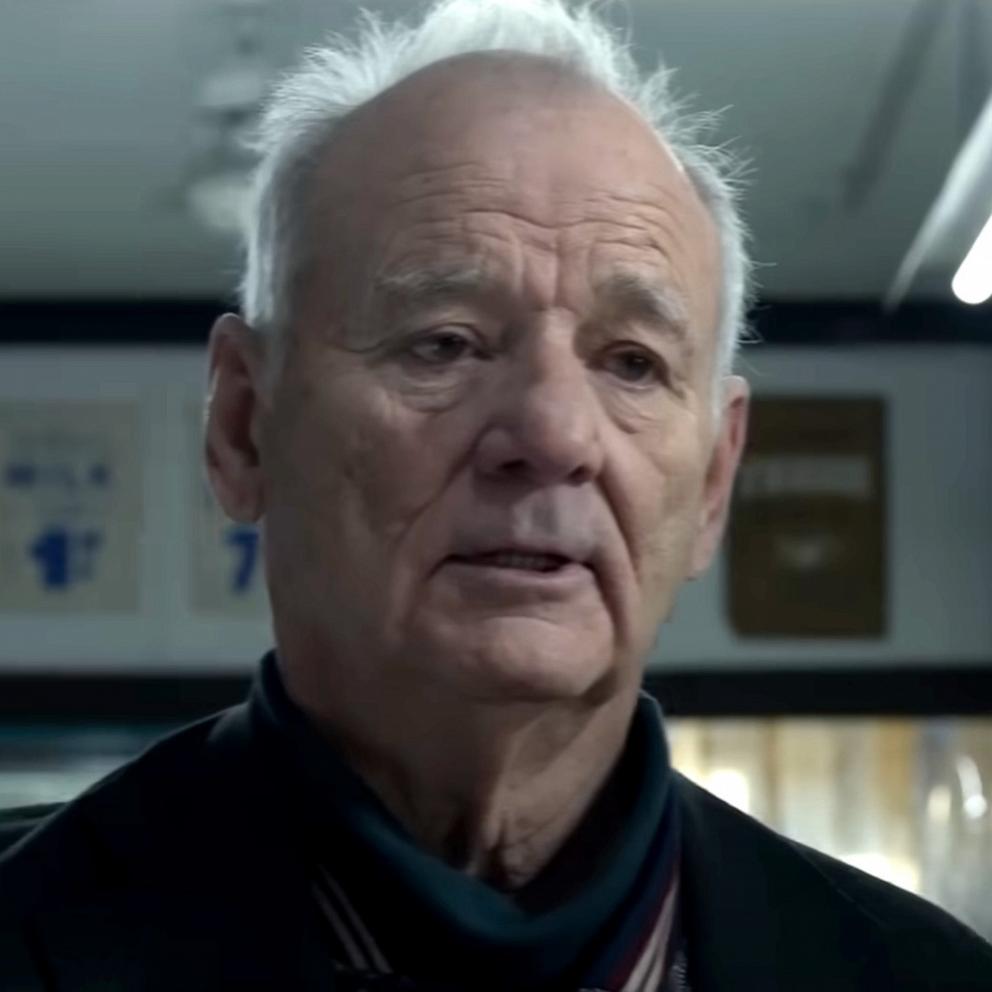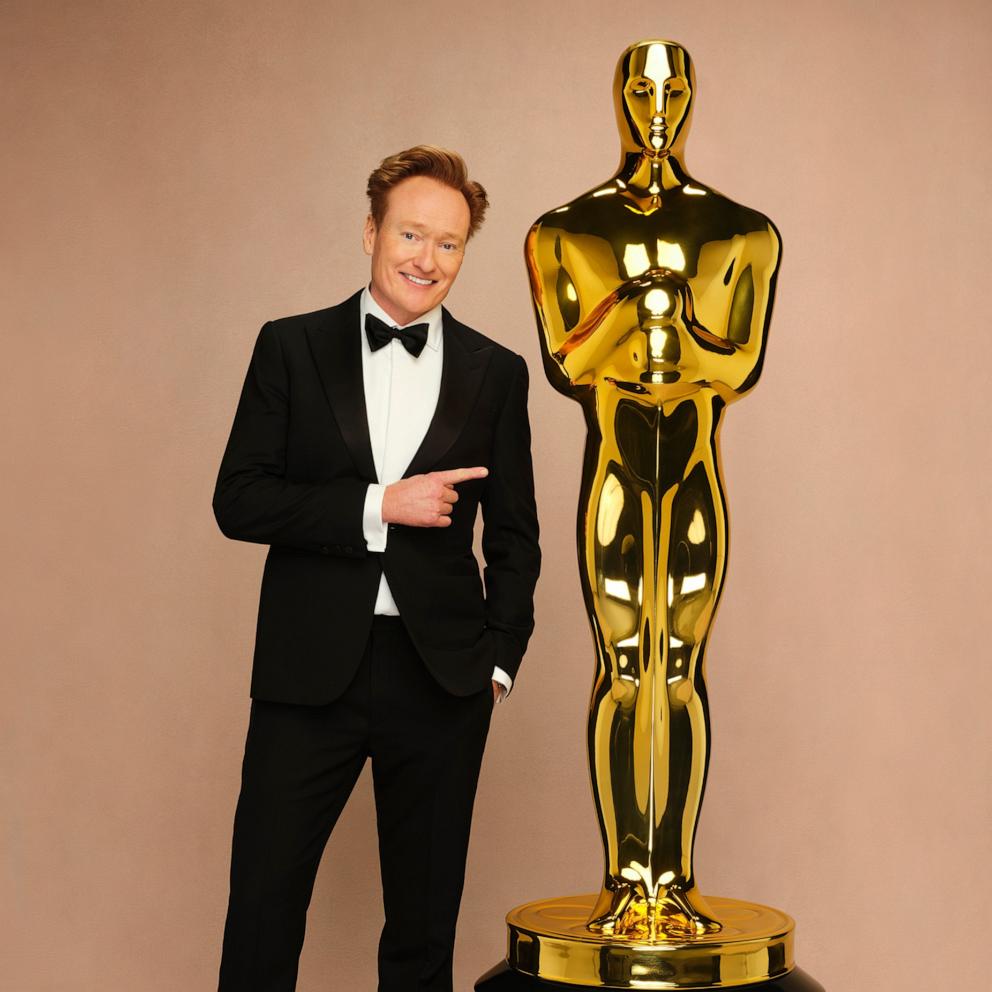'Star Trek' star George Takei on why his activism roots are deeply personal and being a Twitter legend
Famed “Star Trek” star George Takei was a child when he and his family were forced into American internment camps in the 1940s, and he says he still remembers being taught to recite the Pledge of Allegiance while being imprisoned, surrounded by barbed wire.
“I remember reciting the words, ‘With liberty and justice for all’ — innocent child — totally oblivious of the stinging irony of those words: ‘Liberty and justice for all,’” he said.
Watch the full story on "Nightline" TONIGHT at 12:35 a.m. ET
Takei, best known for playing Hikaru Sulu in the original “Star Trek” TV series, was imprisoned with his family between the ages of 5 and 9 along with hundreds of thousands of Japanese Americans following the Japanese attack on Pearl Harbor during World War II. He depicts this part of his childhood in his new graphic memoir, “They Called Us Enemy.”
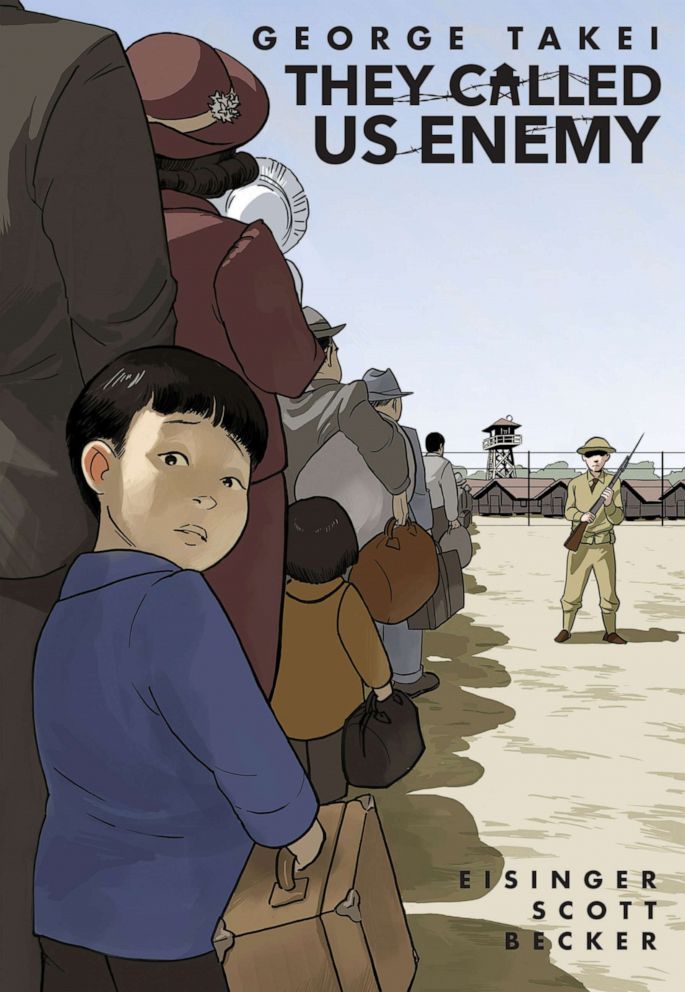
“I am hoping that there'll come a day when enough Americans know about this history — this dark and cruel history of America — that they will not allow it to repeat itself,” he said.
Takei, 82, has long been a vocal political activist. Most recently, he has come out against President Donald Trump’s rhetoric regarding immigration and the federal government’s decisions to detain migrants at temporary facilities and separate migrant families.
“This president is someone who doesn't know history, who is reckless and he is inhuman. We have reached a new low with this president. … Every day is a new outrage,” Takei said.
He said he believes the fear mongering over immigrants coming into the U.S. is happening "at a grotesque scale."
“What's happening now on the Southern border with people who are coming here out of sheer desperation, fleeing for their lives, fleeing poverty and violence, some have seen their parents shot down in front of their eyes,” he continued. "We as children were always together with our family. My parents were always protecting us."
In 1942, President Franklin D. Roosevelt signed Executive Order 9066, which authorized the forced imprisonment of an estimated total of 120,000 Japanese Americans living in the U.S.
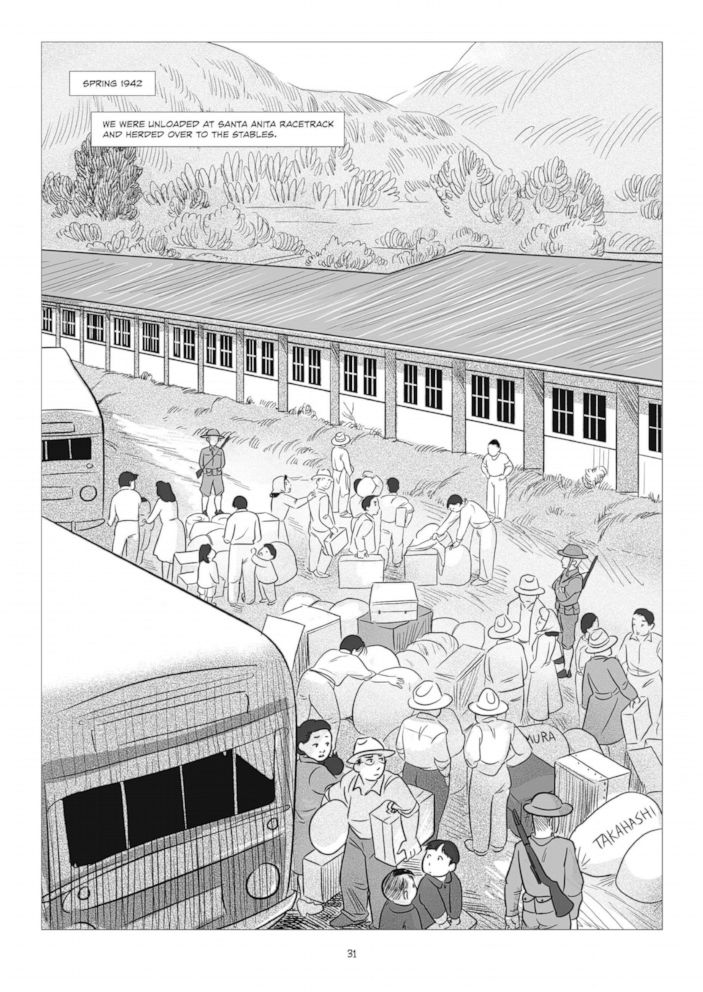
During World War II, horse racing was suspended at Santa Anita Park in Arcadia, California, and the federal government designated the park for multiple uses, including as a processing center for 20,000 Japanese Americans. Takei’s family was among them.
Though they were U.S. citizens, Takei said his family was targeted for their Japanese heritage.
“We looked exactly like the people that bombed Pearl Harbor,” he said. “Money was never, you know, returned. It was gone. And our home. You couldn't make mortgage payments. That was lost. We were stripped naked and brought here to a smelly horse stall.”
He and his family were held at the Southern California racetrack before being sent elsewhere.
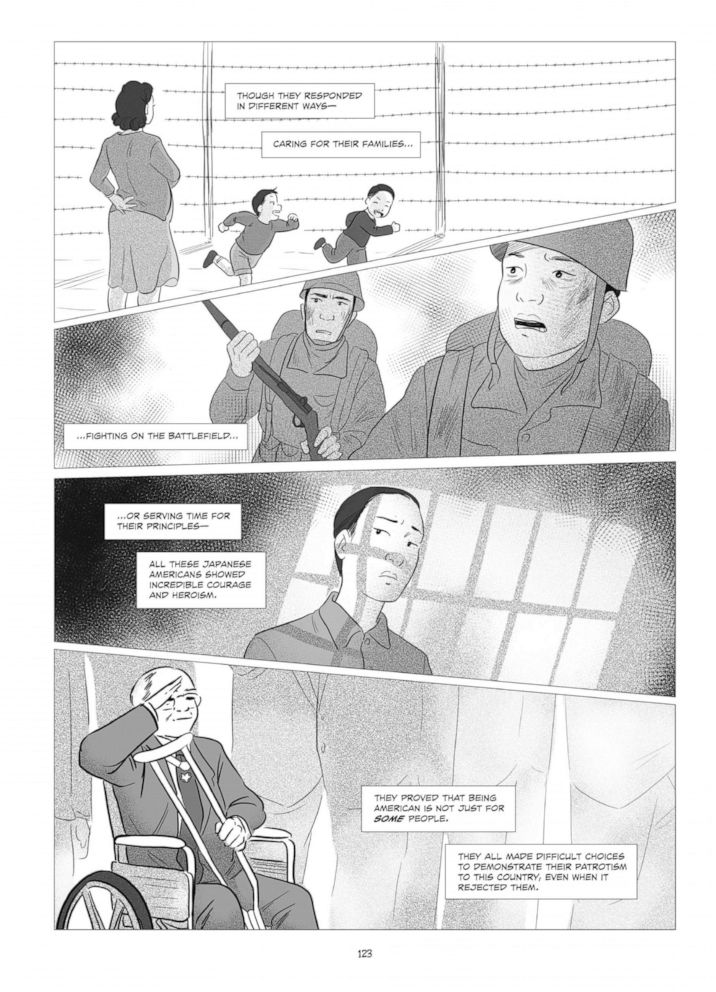
“[Santa Anita Park] is where we were assembled,” Takei said. “And then from here, we were sent out to the actual barbed wire concentration camps that became the place where we would have stayed.”
From the race track, the Takei family was then sent to Rohwer Internment Camp in Arkansas and Tule Lake Internment Camp in California, where, altogether, they spent three years of their lives.
“It was, for my parents, a harrowing experience,” Takei said. “Just imagine, the government takes everything from you, everything that you worked for, in the middle of your life, and to have your business, your bank account, the home that you built taken away from you, and unjustly imprisoned, and having soldiers pointing guns at you… with our children.”
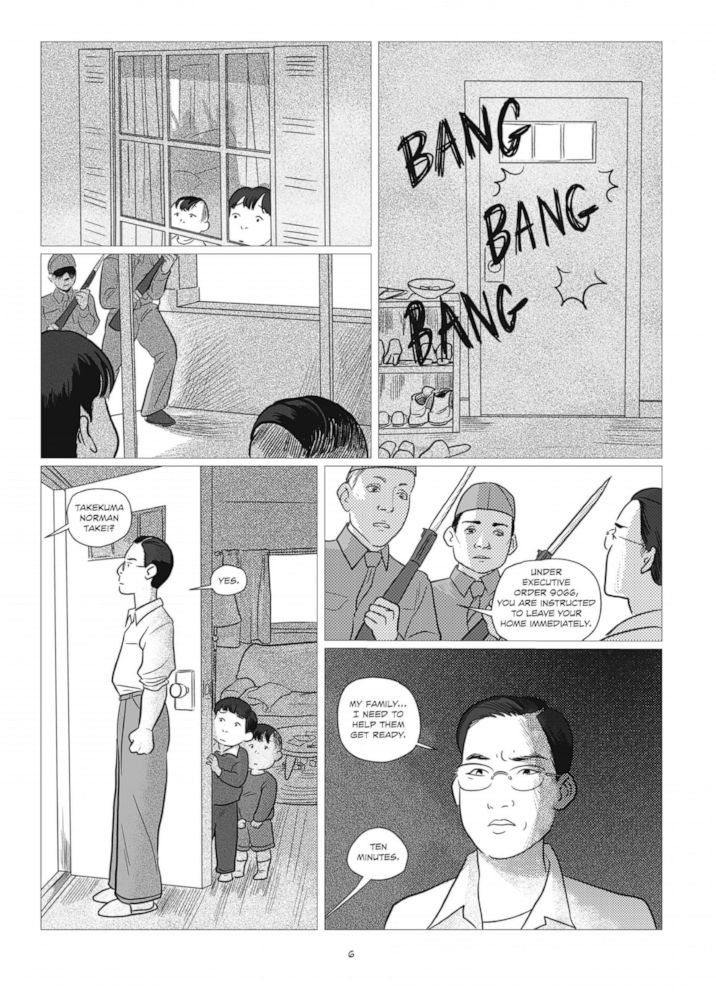
“But thank God, in today's context, thank God we were with our parents. We were grateful for that,” he added.
In “They Called Us Enemy,” which was released this summer, Takei depicts his journey living in the barracks of these internment camps and how he grasped for understanding of the situation from his father.
“[I’m] introducing the story through a 5-year-old's eyes, then I tell my adult story, what my parents were enduring, and all of the challenges and pain and anguish that they were going through. And so, it's a parallel story,” he said.
His graphic memoir will soon be available in every public library across America in an effort to keep this history alive for future generations. These truths of his experience are immortalized at the Japanese American National Museum in downtown Los Angeles, of which Takei is a proud cofounder.
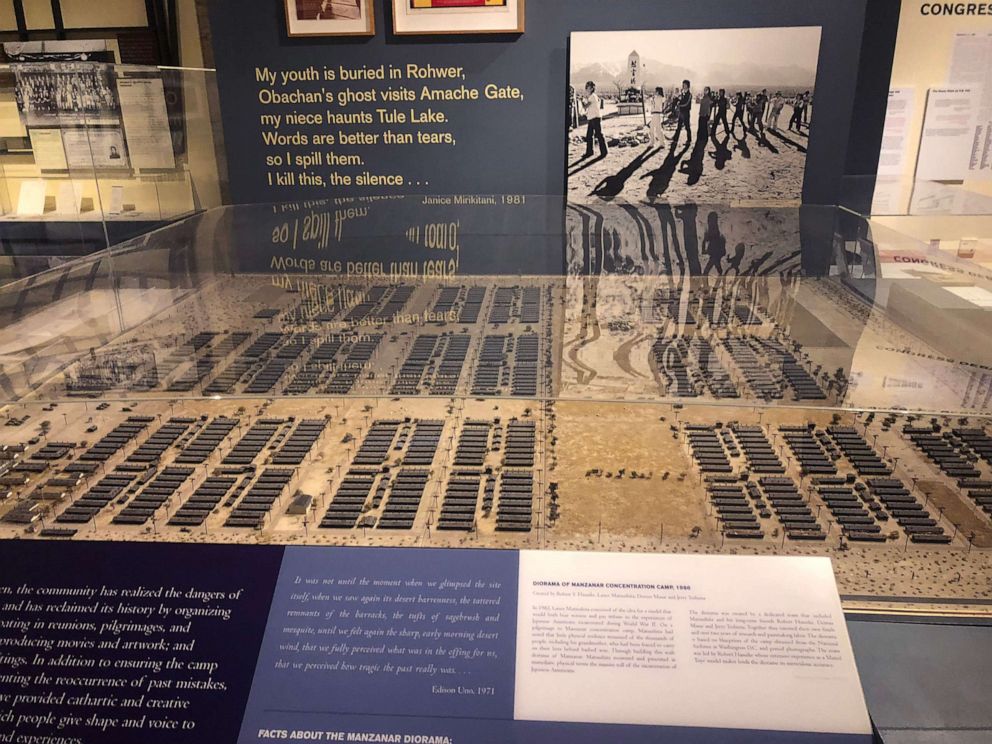
He has used his childhood horror in other projects, too. He is a credited consultant on the TV series “The Terror: Infamy,” which debuted on AMC this week, and the Broadway show “Allegiance” was based on his family’s internment.
Takei broke barriers in his “Star Trek” TV role as an Asian-American actor working in 1960s Hollywood. By portraying the beloved character Hikaru Sulu — the helmsman of the USS Enterprise — Takei was able to weaken stereotypes of Asian Americans at the time.
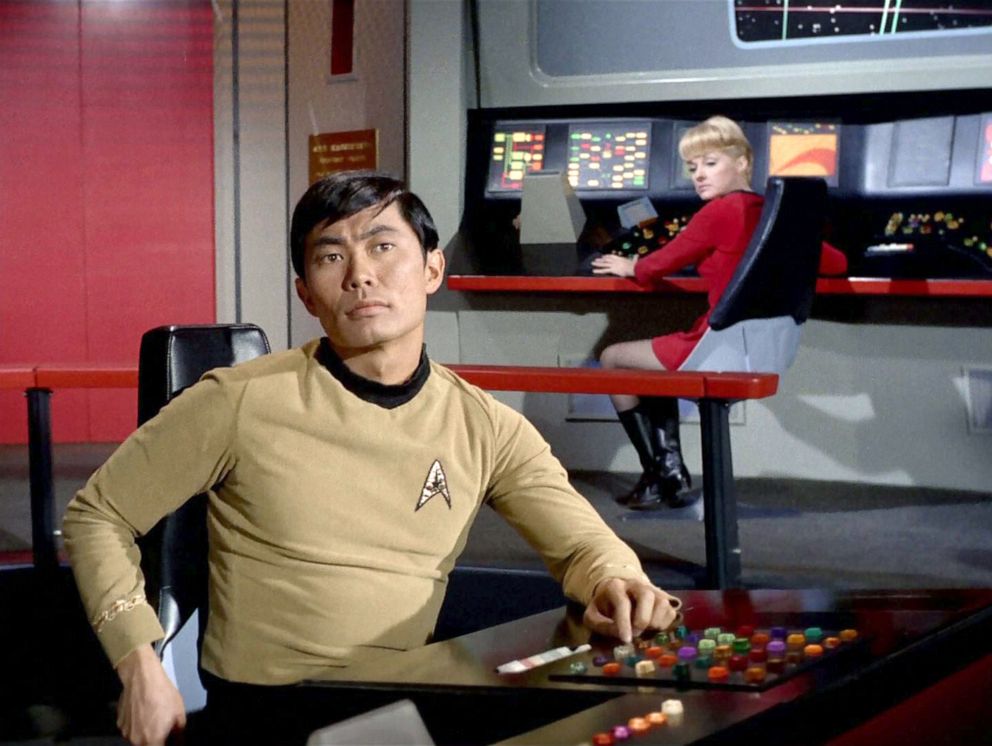
“I was certainly mindful of the role that I'm playing because of the kind of roles that had previously been played by Asian and Asian American actors and actresses,” he said.
Arguably one of his most legendary scenes on the show was his fencing scene.
“The writer had to be on the set, and he told me about the story, and he told me about the samurai sword and I suggested a fencing foil. And he said, ‘Oh, yeah, that's interesting. Do you fence?’ And I said, ‘It's my favorite sport.’”
Takei then trained with the same fencing instructor who choreographed the fencing scenes in the TV series “The Adventures of Robin Hood.” He went on to reprise his role as Sulu in an animated “Star Trek” TV series in the ‘70s, "Star Trek" video games and “Star Trek” films. He has also appeared in dozens of other films and TV series, including "The Simpsons."
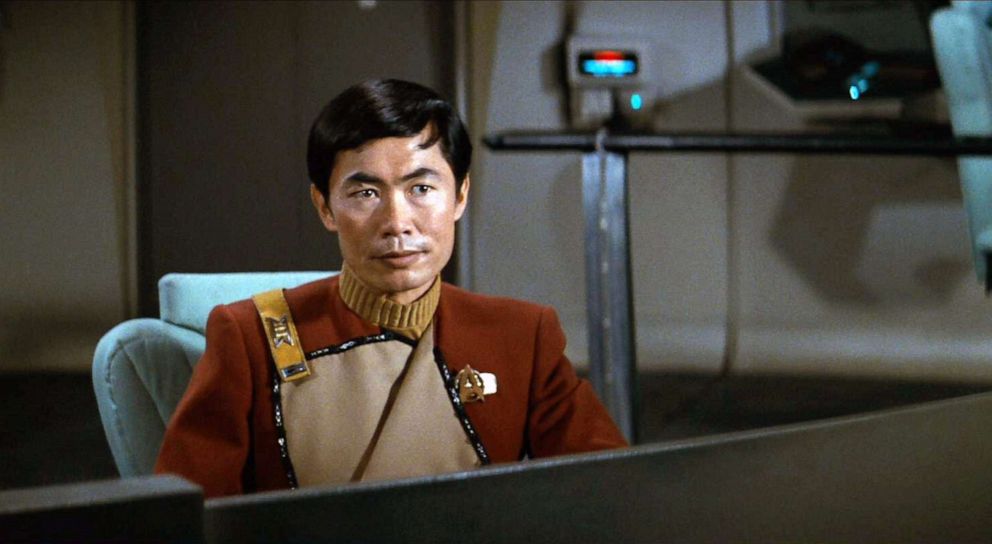
Over the years, Takei has become an outspoken activist, including being a champion for marriage equality alongside his husband, Brad Takei. The two were married in September 2008 at the L.A. museum Takei helped cofound, and they call themselves “Team Takei.”
“For 21 years of my life with George as a committed couple — same-sex couple — we didn't really have any legal rights. And so we really were living, from the government's eyes, as two single men,” Brad Takei said. “But once we got married, we got all the rights and privileges that come with marriage. And we found out that marriage is really cool.”
“The other thing that's important to us is what if something happens to one of us, and we are taken to a hospital? Being unmarried meant that we couldn't visit each other,” George Takei added. “If Brad was injured in an accident, I couldn't go see him at bedside. That was a frightening thought.”
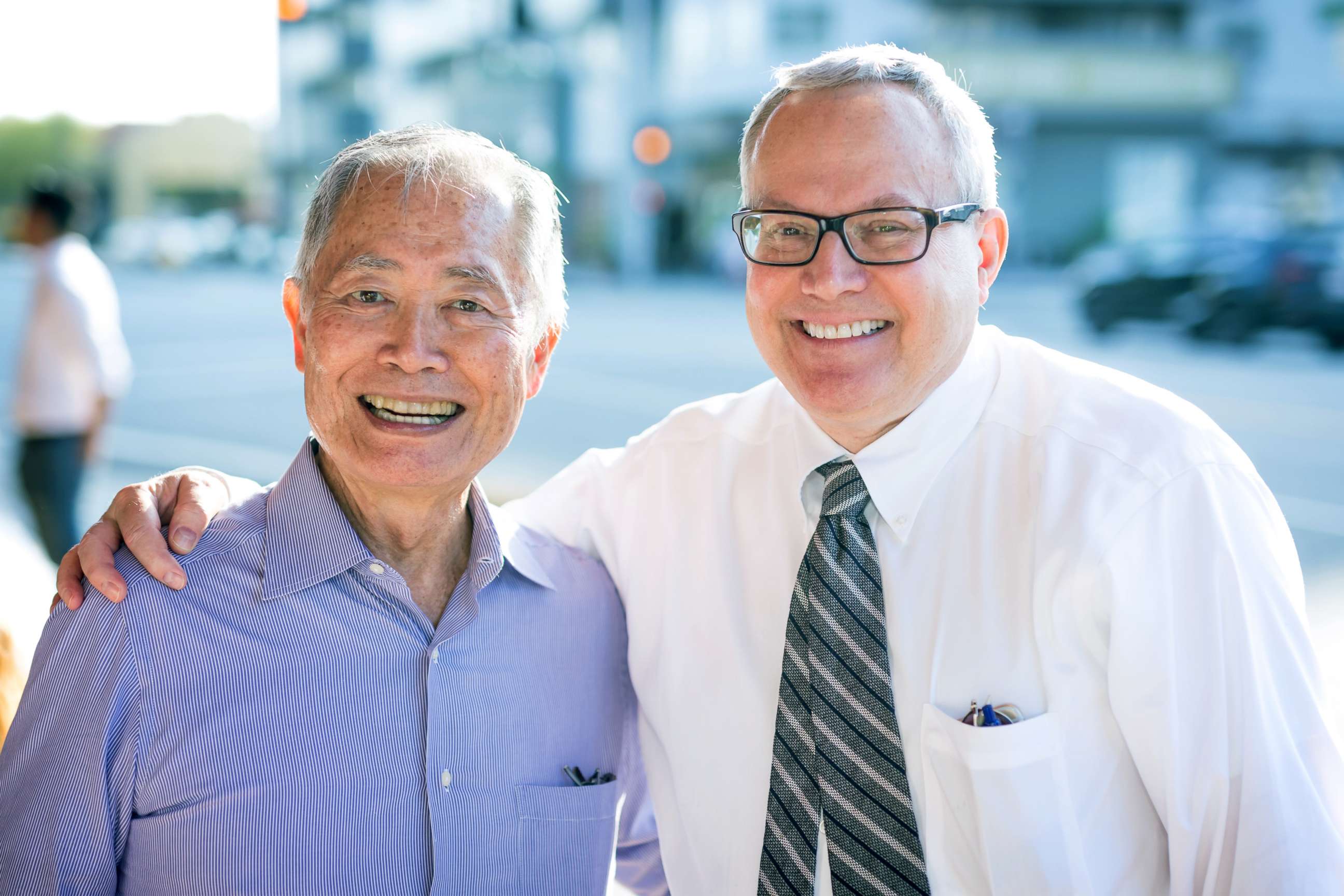
George Takei has become a modern-day legend on Twitter with more than three million followers.
“I try to humanize what I say,” he said. “Yes, I can be outraged and angry, but...I also see the ridiculousness of it and [I try] to laugh at the human condition.”
Takei doesn’t shy away from calling out what he describes as the “blind hypocrisy” of Trump and many of his policies, including the president’s stance on LGBTQ rights.
“He is a man who speaks without any information, without any knowledge of history, and vilifies and inflicts cruelty. That's a demagogue,” he said.
Trump is one of Takei’s most frequent targets on Twitter, even though they know each other from Takei’s involvement on Trump’s reality show, “Celebrity Apprentice.”
Takei recalled a moment when, during a press conference for “Celebrity Apprentice,” he asked Trump to have lunch with him to discuss marriage equality. This was before marriage equality was legalized and before Trump became president.
“We had lunch,” Takei said. “And I said to him, ‘You're a businessman. Marriage equality would be good for you; you'll make a lot of money. … LGBT people will love to come to New York and get married there… and he said, ‘Yeah, that's true, but I believe in traditional marriage.’”
“He was on his third marriage,” Takei continued. “I said to him, ‘I believe in traditional marriage, too.’”
Takei isn’t slowing down, from an ongoing book tour to promote his graphic novel to making Comic Con appearances to continuing his tireless public advocacy.
“I consider it my responsibility as an American citizen to actively participate, particularly because I know my childhood imprisonment — the unjust imprisonment,” he said. “If we don't participate, if we don't educate our fellow Americans to the vulnerability of our democracy, how fragile it can be, then we're not being responsible citizens.”
